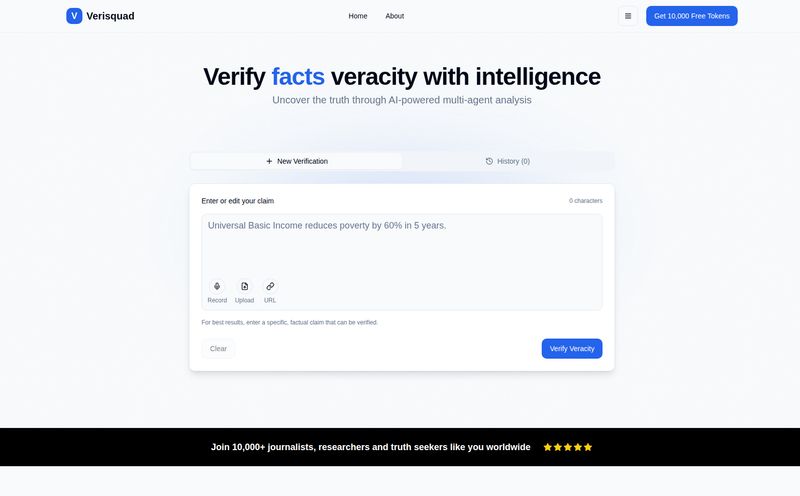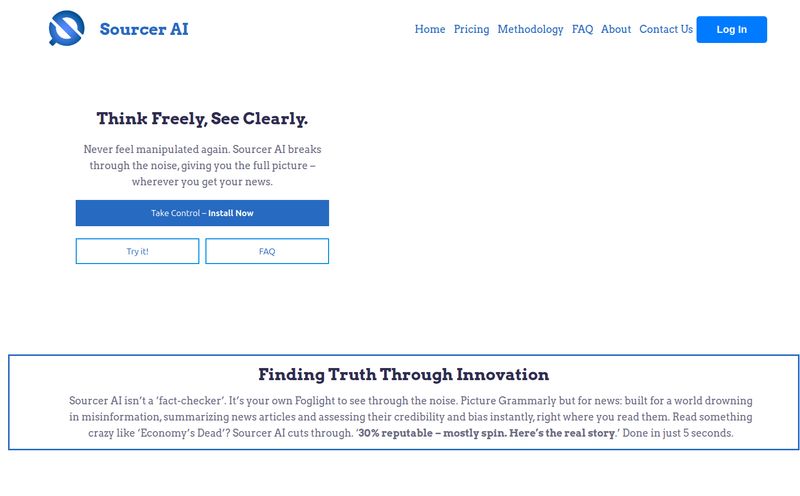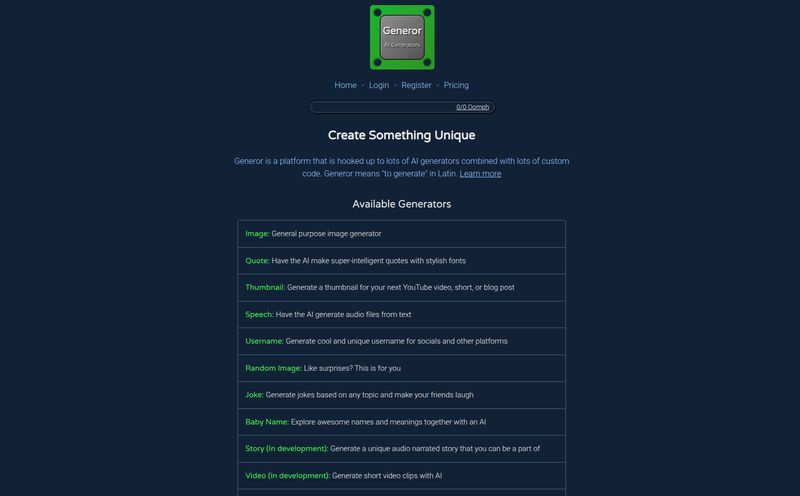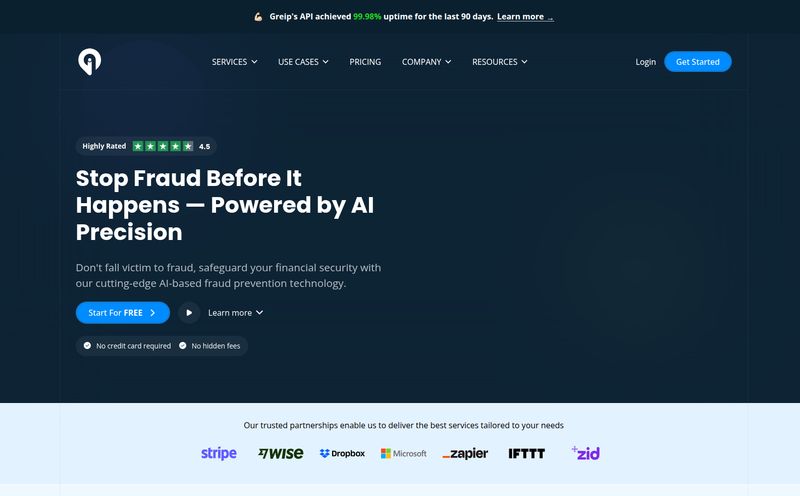If you’ve ever worked with the OpenAI API, you’ve probably had that mini heart-attack moment. You know the one. It’s the end of the month, you’ve been building this awesome new feature, letting your AI assistant run wild... and then you open the billing page. The number you see is... well, it’s a bit more than you’d casually mentioned in the budget meeting.
I've been there. We've all been there. Budgeting for AI development can feel like trying to nail Jell-O to a wall. The costs are fluid, based on these nebulous things called 'tokens', and different models eat through your credit like a hungry teenager at an all-you-can-eat buffet. That’s why when I stumbled across a little tool on a platform called AI Parabellum, the sigh of relief was audible.
They have a completely free OpenAI Pricing Calculator, and it’s quietly become one of my go-to tools before starting any new project. It’s simple, it’s effective, and it’s a heck of a lot better than my old method of 'guess and pray'.
First Off, What is AI Parabellum?
Before we get into the nitty-gritty of the calculator, it's worth knowing that AI Parabellum isn't just a one-trick pony. The first time I landed on their site, I realized it was a full-blown AI tool directory. Think of it as a well-curated library for AI professionals and hobbyists. They’ve got everything from AI text summarizers and video face-swappers to more technical tools like an API log viewer and an email spam checker.
It’s a pretty slick platform, and the fact that they're building out their own suite of free, practical tools like the pricing calculator tells me they actually understand the pain points of people working in this space. They're not just listing tools; they're building them.
The OpenAI Pricing Puzzle
So, why is a dedicated calculator even necessary? Can’t you just check OpenAI's official pricing page? Sure, you can. And you'll see a list of prices per 1K or 1M tokens. But that’s like a car dealership telling you the price per gallon of gas. It doesn’t tell you how much your cross-country road trip is actually going to cost.
The final cost of an API call depends on several factors:
- The Model: GPT-4 is a beast, but it costs significantly more than GPT-3.5 Turbo.
- Input Tokens: The amount of text you send to the model.
- Output Tokens: The amount of text the model sends back.
- Specialized Services: Things like embeddings for semantic search have their own unique pricing structure.
Trying to mentally juggle all of that for a project that will make thousands or millions of calls is a recipe for a headache. Or an angry CFO. You need a tool that does the math for you.
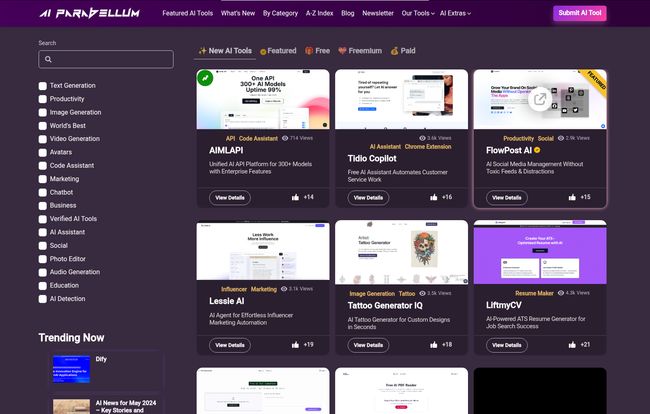
Visit AI Parabellum OpenAI Pricing Calculator
Putting the AI Parabellum Calculator to the Test
This is where the magic happens. The AI Parabellum calculator is beautifully straightforward. You don't need to sign up, you don’t need to give them your email, you just... use it. You select the model you're planning to use, whether it's the latest GPT-4 variant, the workhorse GPT-3.5, or one of the embedding models.
Then you just plug in your best guess for usage. How many requests per month? What’s your average prompt size (input tokens)? How long do you expect the answers to be (output tokens)?
And bam. It spits out a clear, estimated monthly cost. But here's what I really like about it.
The Good Stuff
The biggest pro is obvious: it's free. In an industry where every service wants a slice of your credit card, a genuinely useful and free tool feels like a rare gift. But beyond that, it gets a few key things right. The tool provides a fantastic, detailed cost breakdown. It doesn't just give you a single number; it shows you exactly how much your input and output tokens are contributing to the total. This is incredibly helpful for optimizing your prompts. Seeing that your long-winded inputs are costing you a fortune is a great motivator to be more concise!
Furthermore, the support for multiple OpenAI models is essential. It lets you quickly compare scenarios. 'What if we used GPT-3.5 for 90% of the tasks and only used the expensive GPT-4 for the most complex ones?' You can calculate that in seconds, making a much stronger business case for your architectural decisions.
Keeping It Real: The Limitations
Now, I'm not going to tell you this tool is an infallible crystal ball. It has its limitations, and it’s important to be aware of them. The single biggest one is that its accuracy is entirely dependent on your estimates. It follows the old programming adage: garbage in, garbage out. If you have no idea how many tokens your average user query will generate, the calculator can't magically know either. It's a calculation tool, not a psychic one. My advice? Run a small-scale test with your app, log a few hundred API calls, and get a real-world average. Then plug those numbers in.
Also, it's focused on the most common API services. If you're doing more niche stuff like fine-tuning models, you'll still need to consult OpenAI's official docs. This calculator is for the 90% use case, not the 10% edge case. Which, for most of us, is perfectly fine.
Who Is This Tool Actually For?
I see a few groups of people getting a ton of value from this. First and foremost, indie developers and startups. When every dollar counts, being able to forecast your burn rate on a core service like this is not just nice—it's necessary for survival.
Next up are product managers and team leads in larger organizations. Before you can get sign-off on that shiny new AI feature, you need to present a realistic budget. This tool gives you the data to do that confidently. Finally, it's great for students and hobbyists who are learning about AI and want to understand the real-world costs without having to risk a surprise bill.
A Look at the Wider AI Parabellum Ecosystem
Like I mentioned, it's worth taking a peek around the rest of the site. I've found their AI Prompt Generator to be a neat little utility when I'm stuck for ideas, and the Harmful Content Detector is an interesting implementation of safety-focused AI. It feels like they're building a practical, no-fluff toolkit for the modern developer. It's not just a directory, but a destination. Having a collection of these free, focused tools in one place is just... convenient. And in our line of work, convenience saves time, and time saves money.
Frequently Asked Questions
Is the AI Parabellum OpenAI Calculator really free?
Yes, 100%. As of my last check, there are no hidden fees, no required sign-ups, and no freemium upsells for the calculator itself. It’s just a free, useful tool.
Which OpenAI models does the calculator support?
It covers the most popular and widely used models, including various versions of GPT-4 (like GPT-4 Turbo) and GPT-3.5, as well as the text embedding models which are critical for search and retrieval applications.
How accurate are the cost estimates?
The tool's calculations are accurate based on OpenAI's public pricing. The accuracy of the final estimate, however, depends entirely on how accurately you can predict your own usage (number of requests, and input/output token counts).
Is AI Parabellum just a calculator?
Not at all. The calculator is just one tool in their arsenal. AI Parabellum is a comprehensive directory of AI tools and news, and they are also building their own suite of free utilities for developers and AI enthusiasts.
Do I need an account to use the OpenAI Pricing Calculator?
Nope. You can head to the page and start using it immediately. This frictionless access is one of its best features.
Does it calculate costs for image models like DALL-E?
Currently, the calculator focuses on the language and embedding models. For DALL-E or other modalities, you'd still want to refer to the official OpenAI pricing page. Given how they update their platform, I wouldn't be surprised to see it added in the future though.
My Final Takeaway
In the wild west of AI development, any tool that brings a little bit of order to the chaos is a winner in my book. The AI Parabellum OpenAI Pricing Calculator is exactly that. It’s a simple, elegant solution to a very common and very frustrating problem.
It won't build your app for you, but it will give you the financial clarity you need to build it responsibly. It replaces guesswork with data, and anxiety with confidence. For a free tool on an already-useful platform, you really can’t ask for more than that. Give it a spin; your wallet will thank you.
Reference and Sources
- AI Parabellum OpenAI Pricing Calculator - The main tool reviewed in this article.
- Official OpenAI Pricing Page - For direct-from-the-source pricing information and details on other services like DALL-E and fine-tuning.
